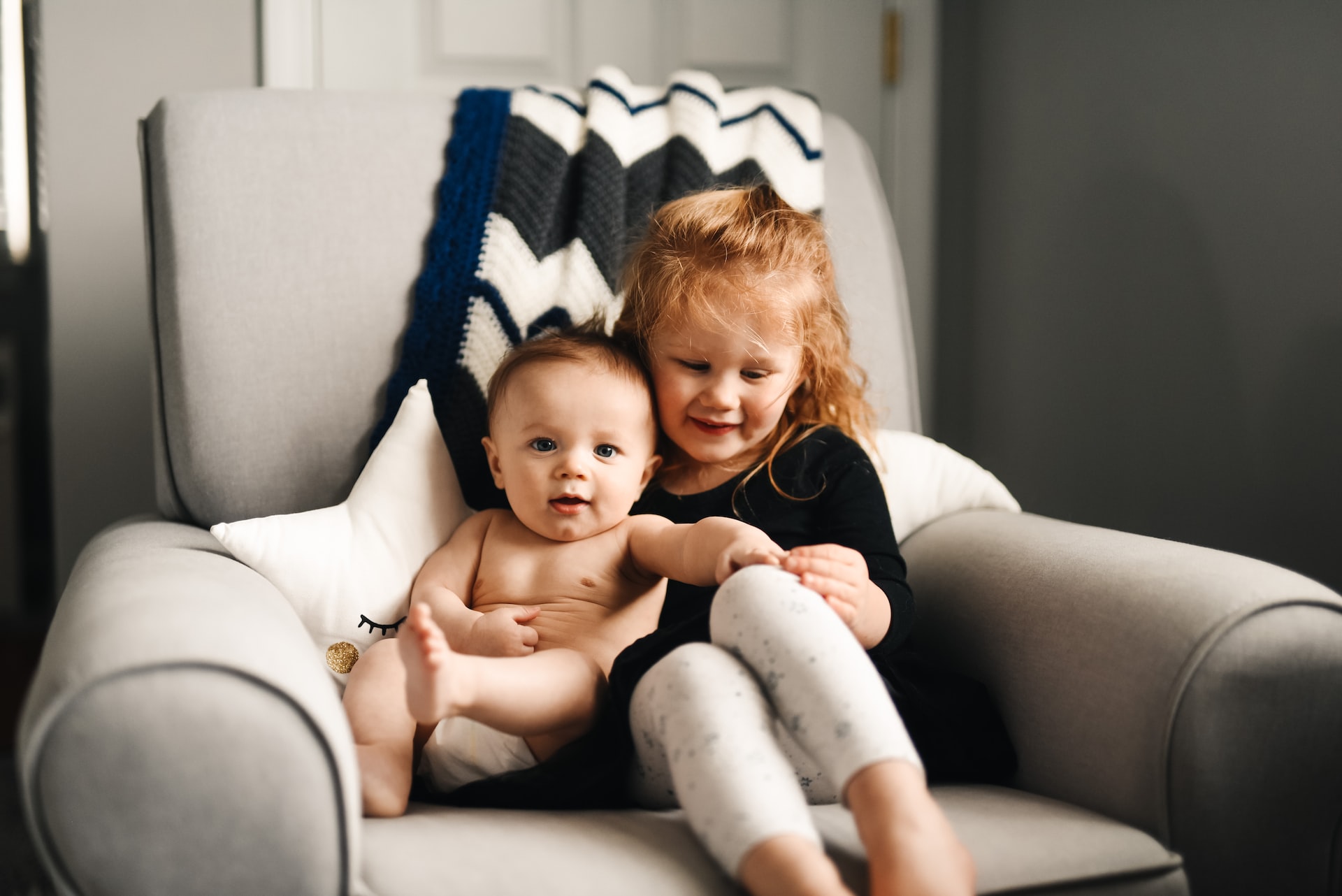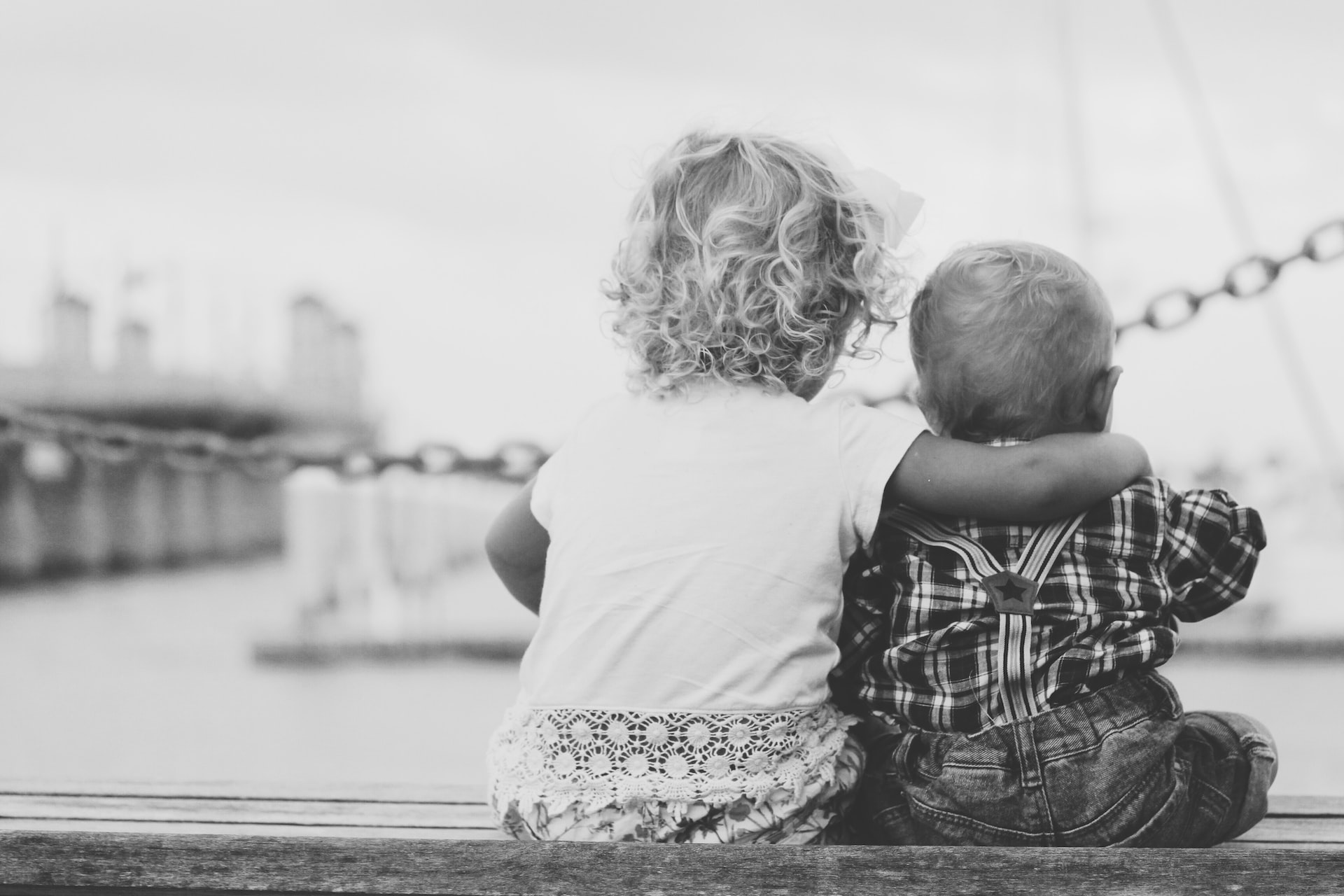It is natural for families to grow and expand over time. From the magical and terrifying first child experience to the joy and overwhelm of adding yet another baby to the family.
While us as adults can become wrapped up in the excitement of welcoming a new baby to the family, your existing children may not share this excitement. Children often have no idea what this new baby will mean to their world (just like us when we were first-time parents). This new baby that everyone keeps talking about is already getting so much attention and conversation air-time that children can begin to feel lost before the baby even arrives. Then the day comes, Mum has the baby and your child’s life will never look the same again.
When a new sibling enters the world, children’s understanding of their relationship with the adults in their lives change, their routine changes and the dynamic between their interactions with others changes. So much change for a little person who already doesn’t fully understand how the world works. This is where challenging behaviours can arise. You may be stuck wondering what happened to your sweet, self-occupying and happy child. Let me reassure you they are still there, they just have some strong feelings around the changes that have occurred within their family.

Here are few reasons that help to explain why your child is struggling to manage and accept the new member of the family. The key to helping our children with experiences such as welcoming a new sibling is to understand what is happening for them:
1. Loss of control – children thrive on being able to control their world as it gives them a sense of stability and security. When a new baby arrives children can feel an overwhelming loss of control and may act out in an effort to get it back or to simply vent the feelings they are experiencing.
2. Change in relationship dynamics – children (especially your first born) recognise the change in relationship dynamics as soon as the baby is born, and sometimes beforehand. They notice that Mum and Dad’s attention isn’t just for them anymore, they notice that their family share love with another child now. They observe the way their parents look and coo at the new baby and sometimes stopping the older siblings from touching the baby out of fear they may hurt them. This can sometimes cause children to feel angry or frustrated at the new baby and the child will react out of jealously. These relationship changes are normal, however the child may feel the urge to act out to strive for the attention of their parents that they feel has been lost.
3. Routine disturbances – children thrive on stability of routines, they flourish when their day has routines that are predictable. Therefore, when a new baby comes in (who is up in the wee hours of the night potentially waking the older children up and making everyone tired), who needs mum or dads attention during bath time or meal time taking away that one on one that was previously given to just them, or during play time that is no longer just for them as the baby needs attention too, these small but significant changes can result in our child acting out of frustration, jealously or hurt at the loss of their comfortable and familiar routine.

What can we do that will best support our older children during this time of big and significant change in their lives?
• Let their feelings be – this can be a hard one for us as parents as our first instinct is to try and help our children to overcome whatever negative emotion they are experiencing. However, the best way for us to support our children through this change in their lives is to allow them the space to feel what they are feeling and acknowledge them with empathy and understanding. If we let our children know we hear them, we see them and it is okay to feel the way you are feeling (especially knowing how much of a change this has made to their world) then we are able to show them the love and connection with us is still there and they don’t need to fear the change.
• Talk about and allow them to help with the new baby – Talking to your child about the new baby, what changes are going to happen, asking THEM what changes they think will happen can allow them time to process what is going on. Talking to them about how the new baby makes them feel, what they are learning and if they would like to help with the new baby are all wonderful ways of helping to show your child they are still an important part of the family. A wonderful bonding experience and way to help your older child feel empowered when they have that loss of control in their world, is to give them special jobs to help with the new baby. Fetching a clean nappy, helping to burp the baby, reading them a story etc. these can all help your older child to feel that they are part of the experience alongside Mum and Dad.
• Give them “special” time – Especially for first born children, but applicable to all children within your family, having dedicated “special” time just for them is a fantastic way of ensuring they get a chance to connect with their parents/family without the baby. We can sometimes forget that our children went from having a huge amount of undivided attention, connection and freedom with us prior to the new baby. So trying to dedicate some opportunities for special activities that they enjoy, a trip to a café or park with just that child, playing their favourite game or watching their favourite movie together without the baby can make the world of difference. Particularly if the child has these moments to look forward to, it allows them to predict these connection times and they may feel a strong sense of security in knowing their family want to spend that individualised time with them.
The most important thing is to try and look at the situation through our children’s eyes, see the new baby and what that means to your child’s world from their perspective. Doing this can often help us to realise that the behaviours our children are displaying after a new baby has arrived, are not a reflection of who our child is but rather a reflection of our child needing help navigating this new dynamic to his world. Connecting with our other children is a simple but very effective way of helping them to settle into the new normal.
Children are wonderfully adaptive and accommodating; they just need guidance, support and above all else… understanding.
Written by Kelly West
Service Director and Partnerships inclusion and research coordinator.
